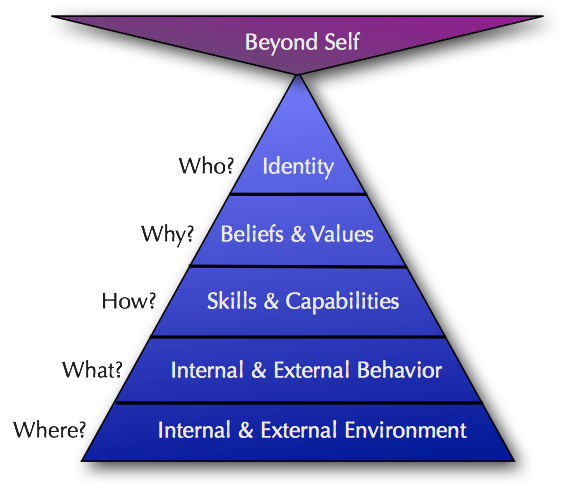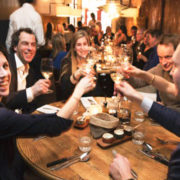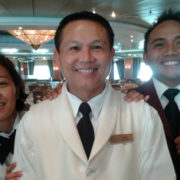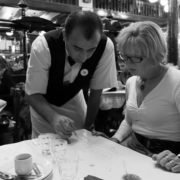The complexity of hospitality unraveled
Often I hear: “How hard can it be to be hospitable, friendly, attentive and polite?” Yes, … how hard can it be? Sometimes people say to me that hospitality is in my veins and the way that I express it is like my second nature. What a nice compliment.
Why is it so complex to express hospitality every day?
In order to get an answer, we have to understand the following: Behavior/ Skills and Values / Beliefs. Concepts of the ‘Neurological levels‘ of Robert Dilts, based on “Steps to an Ecology of Mind‘ by anthropologist Gregory Bateson.
Behavior
Behavior is what everyone can see of you, on the outside. How you talk, what you say, how you look, how you laugh, how you move, run, and so on. So behavior is on the outside. If people have a judgment, they often judge others by their behavior. Because that’s the only thing we can see from a person. Apart from the fact whether this observation is objective, or not.
That’s why real hosts and hostesses make a big difference every day.
Skills
Our behavior is guided by our skills; the things we think that we are good in. People can see (or think they can see) whether you are good at a particular skill. For example, opening a bottle of wine with a sommelier knife, pour a good glass of beer from the tap, walking with a full tray. Also climbing, accounting, photography, painting, carpentry are skills. The question is: is being hosptitable a behavior or a skill? The answer is two times Nay!
Values
The way you bring out your behaviors and skills is guided by our values and beliefs. Values are those things that you find valuable or important in life. For example, a value can be: “I want to surprise people” or “I want to entertain people.” An accountant may think that it is important that all figures are correct. Values are described in a positive way and are context-sensitive.
Beliefs
Beliefs are those things that you are convinced of. If we get bogged down in political discussions, we talk from out of our values and beliefs. Beliefs are also the things that you are convinced about yourself. For example that you are convinced that you’re good at something. Or the belief that you can give people a hospitable treat.
Outer and inner world
There where you can see behavior and skills on the outside of a person, values and beliefs are in the inner world of people. These unconscious processes are controlled by somebody’s identity. When it comes to being hospitable, certain values and beliefs are important to have. Students who have a job in the hospitality industry may find it important to receive their salary and good tips. And not primarily “giving people an unforgettable evening”. As a manager it is important to recognize this and give students a proper training and daily coaching, based on the values and beliefs of the company.
The big difference
Being hospitable is not based on behavior or skills. That’s is the result or outcome of what we see, hear and experience outside of a person or company. Laugh, making people feel welcome with exclusive attention, comes from within. That is why real hosts and hostesses make a big difference every day, bind people, encouraging others and often operate on important positions.
Hospitable
For that reason we use at Mind Your Guest the term ‘hospitable’ instead of ‘hospitality’. Because a person is hospitable or not. An organization is hospitable or not. It is black or white. A person or a company cannot be a little bit hospitable. The term ‘hospitable’ can be placed at the level of identity located at the neurological levels. This level is important in controlling the levels of values and beliefs.
But, I’m not a hospitable person!
If you feel that you’re not a hospitable person, don’t be afraid, because a lot of people are not hospitable. If you know that you’re not hospitable, make sure that you don’t choose a profession where contact with clients, guests or passengers are important.
Are you enthusiastic about this story and do you want to know more about having great successes for your company with hospitality, service and quality, please read about the Model of Attention® developed by Mind Your Guest. A model that is now being embraced internationally and used in various industries.
With valuable regards,
Robert Bosma
This post is also available in:
![]() Nederlands
Nederlands













Leave a Reply
Want to join the discussion?Feel free to contribute!